
What Else Did Zhao Ziyang Say - Du Daozheng's Diary
*What Else Did Zhao Ziyang Say - Du zheng's Diary* was published simultaneously in Hong Kong and Taiwan on January 17, 2010 (Hong Kong Tiandi Book Co., Ltd. and Taiwan Printing Literature and Life Magazine Publishing Co). The book is the first to publicize more than 30 unpublished conversations in Zhao Ziyang's recorded oral transcripts, covering a number of major issues. The book is illustrated with a selection of more than 40 rare photographs taken by the author. The book is divided into three parts: upper, middle and lower. It records Zhao Ziyang's exhaustive expressions on topics such as anti-corruption, the nascent bureaucratic capitalist class, federalism, punishment by words, media management, political system reform, and the new leftist trend of thinking.
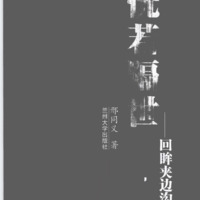
Worlds Away: A Look Back at Jiabiangou
This book was published by Lanzhou University Press in 2004. The author, Xing Tongyi, once served as deputy director of Gansu People's Broadcasting Station and director of the Standing Committee of the Jiuquan Municipal People's Congress.
Jiabiangou Farm is a farm located on the edge of the Badain Jaran Desert in Jiuquan, Gansu Province, about 30 kilometers northeast of Jiuquan City. It became a labor camp in 1957. Before it was banned in October 1961, more than 3,000 intellectuals who were labeled as rightists were detained here. During the Great Famine, most of the intellectuals in farm labor camps died due to starvation and excessive workload. This is known as the Jiabiangou Incident. Jiabiangou has also become a symbol of the concentration camps where persecuted intellectuals were imprisoned.
Xing Tongyi was born in Tianshui, Gansu. He said that when he was young, he witnessed a neighbor named Guo being beaten as a rightist and sent to Jiabiangou Labor Camp. In 1961, he learned that this neighbor had starved to death in Jiabiangou. When he was in school at No. 1 Middle School in Tianshui City, his math teacher was Li Jinghang, a Christian who survived Jiabiangou. Xing Tongyi later served as a reporter and deputy director of Gansu Radio Station for a long time, and went to work in Jiuquan in 1996. After that, he took advantage of various opportunities to go deep into Jiabiangou and some surrounding labor reform farms. By consulting a large number of historical materials, he interviewed dozens of rightists who had undergone labor reform in Jiabiangou, or the children of these rightists. It took eight years to complete this book.
Unlike Yang Xianhui's novelistic description of Jiabiangou, Xing Tongyi's narrative is composed of interviews with the people involved and quotations from first-hand historical materials. According to Xing Tongyi, the historical materials he referred to include the Jiabiangou Farm's "Plan and Mission Statement" and the anti-rightist report of "Gansu Daily" in 1957. In addition to interviewing Jiabiangou survivors or their children, he also found information on more than 40 of the more than 2,000 rightists who were in labor camps at the time and were prosecuted by the Jiuquan County Procuratorate for resisting labor camps. After the book was published, people continued to provide him with historical materials, such as death notices and diaries of the victims.
How many labor camp inmates were there in Jiabiangou at that time? In order to clarify this issue, Xing Tongyi interviewed dozens of people, reviewed information, and also found Luo Zengfu, the production section chief of Jiabiangou Labor Camp, the only farm management cadre alive at the time. Based on the information provided by Luo Zengfu, Xing Tongyi's research concluded that there were a total of about 2,800 inmates in Jiabiangou Farm at that time, including about 2,500 rightists. This number is considered to be relatively accurate.

Special Feature|Famine and County (3): Hao County's Tragedy
This article is taken from six accounts by Mr. Liang Zhiyuan. Mr. Liang Zhiyuan was the deputy director of the Bo County People's Committee (i.e., the government) office during the Great Famine. He also served as the head of the Production and Welfare Section of the County Party Committee's Rural Work Department and the deputy director of the County Party Committee's Living and Welfare Office, where he was responsible for a lot of things. In 2002 and 2005, based on three years of rural work notes and relevant historical information, Mr. Liang Zhiyuan wrote a number of articles describing the Bo County famine, including "A Painful Lesson in History - The Unnatural Deaths of the Rural Population in Bo County." and several other articles. Due to the sensitivity of the matter, these have not been published publicly, and many of these materials are released to the outside world for the first time in this article.
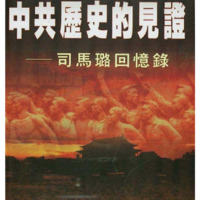
Memoirs of Sima Lu: A Witness to the History of the Chinese Communist Party, The
Sima Lu (1919-2021) was an expert on the history of the Chinese Communist Party. He joined the Chinese Communist Party in 1937, then was politically persecuted in Yan'an, left it, and was expelled from the Party in 1941. In 1952, Sima Lu published “Eighteen Years of Struggle” in Hong Kong, writing about his tortuous journey from defecting to the Communist Party to his awakening and eventual choice of freedom. It became a sensation. He has made in-depth special studies on several leading figures of the CCP, such as Qu Qubai and Zhang Guotao. His memoir, “Witness to the History of the CCP”, is divided into three chapters according to its contents: the first is about his personal experience, the second about the first generation of CCP figures, and the third is devoted to the struggle between Mao Zedong and Zhou Enlai.

Experience: My 1957
Born in 1932, He Fengming and her husband Wang Jingchao were both labeled "rightists" during their work at the Gansu Daily Newspaper. In late April 1958, they were sent down to work at the Anxi Farm in Jiuquan. Her husband was sent to the famed Jibiangou Farm, where he died of starvation during the famine of 1960, but she survived. In order to refuse to forget, she spent ten years writing a 400,000-dollar self-narrative, *Experience - My 1957*. The book was published by Dunhuang Literary Publishing House in 2001.
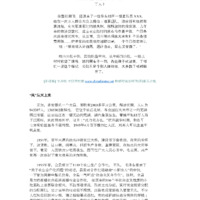
Special collections |Famine and the County (6): The "Communist" Dream of Doing Nothing that Wreaks Havoc on the People
During the period of reorganization of the commune, a first-class propagandist from East China was sent to the commune. At a mass meeting of 10,000 people, he proposed that whoever wanted to withdraw from the society, the government would settle accounts with him. There was an account of the losses incurred when the army crossed the border; an account of the disaster relief during the past few years, an account of the poor-peasant cooperative fund when the Agricultural Society was established; and the accounts of the various expenses incurred in sending disaster relief doctors from all over the country and transferring rice and seeds from Yunnan and Sichuan ...... The honest peasants were dumbfounded. Each one privately complained: "The original said that membership was voluntary and withdrawal was free, but now they have changed their minds."

Personal experiences of political movements
This book is a collection of many authors, most of whom were former senior officials of the Communist Party of China, such as Li Rui, Xiao Ke and others. Through the author's recollections, we can learn about the political movements of the Mao Zedong era, including the Cultural Revolution, the Anti-Rightist Movement, etc., as well as the details of many unjust cases, such as the Hu Feng case, which is quite convincing. This book was published by the Central Compilation and Translation Bureau Press in mainland China in 1998.
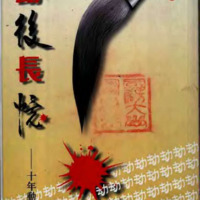
Long Memories after the Hijacking -- Chronicle of Ten Years of Turmoil
The author of this book, Mu Xin, was an early member of the CPC and served as chief editor of "Guangming Daily" in the 1950s. At the beginning of the Cultural Revolution, he was a member of the Central Committee's Cultural Revolutionary Group. In 1967, he was defeated and imprisoned in the Imperial Prison (Qincheng Prison). This book was published in Hong Kong in 1997. Because of the author's status, this book is helpful for understanding high-level circumstances during the pre-Cultural Revolution and early Cultural Revolution period.
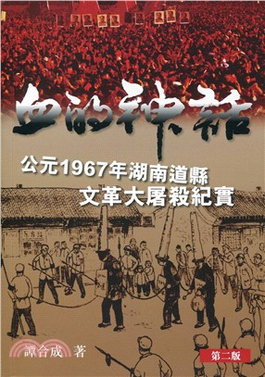
Blood Myths
In 1984, CCP’s reformist leader Hu Yaobang sent more than 1,300 officials to Dao County in Hunan Province to investigate mass killings that occurred in 1967 during the Cultural Revolution. Tan joined the team for part of its stay in Dao County. As a writer for a state publication, Tan gained a number of documents unearthed during the investigation and conducted interviews, based on which he wrote an article of 100,000 characters. His editors, however, said it could not be published because the political climate was changing with the start of the "bourgeois liberalization" campaign, which eventually led to Hu's fall. Tan decided to continue his investigation and traveled to Dao County many times to do follow-up interviews. Tan collected millions of words of information, including nearly 400 case studies, and interviewed almost all the key figures who agreed to be interviewed.
In 2010, Tan published Blood Myths: the 1967 Mass Killings in Dao County, Hunan Province during the Cultural Revolution through Hong Kong-based Tianxingjian Publishing House. This nine-volume work consists of 83 chapters and more than 500,000 characters. According to Tan's investigation, in the 66 days from August 13 to October 17, 1967, more than 9,000 villagers, including women and children, were killed or forced to commit suicide because they were wrongly accused of engaging in counter-revolutionary activities. More than 14,000 people were directly implicated in the killings, including 426 state cadres, 2,767 village officials, and 3,880 Communist Party members. Unlike works on the history of the Cultural Revolution previously published in China that focused on the persecution of intellectuals, this book presents the systematic violence suffered by villagers. The book contains not only the words and stories of a large number of those killed, but also those of the killers and others involved, enabling readers to develop an all-encompassing, multi-faceted understanding of this tragic event. According to Yang Jisheng (see separate entry), most of the information about the mass killings currently circulating at home and abroad originated from Tan's investigations and interviews.
The book was reprinted in 2011 and a revised edition was published in 2016, expanding the book to 700,000 words. In 2017, Oxford University Press published <i><a href="https://global.oup.com/academic/product/the-killing-wind-9780190622527?cc=us&lang=en&">The Killing Wind: A Chinese County's Descent into Madness during the Cultural Revolution</a></i>, an edited and condensed (with Tan's permission) version of the book by Stacy Mosher and Guo Jian.

Li Peng's June 4 Diary
"Li Peng's June 4 Diary" was published by Bao Park, the son of Bao Tong, the political secretary of former CCP General Secretary Zhao Ziyang. Based on a manuscript of a diary allegedly kept by Li Peng during the June 4 Tiananmen Square incident, the book was originally scheduled to be published in Hong Kong by New Century Press on June 22, 2010. At the time of the June 4, 1989 Tiananmen Square incident, Li Peng was a member of the Standing Committee of the Political Bureau of the Communist Party of China Central Committee (CCP Central Committee) and the Premier of the State Council. The diary covers the period from April 15, 1989 to June 24, 1989, when Li Peng was a member of the Politburo Standing Committee and Premier of the State Council. Bao Park said that, apart from converting the diary from the original simplified Chinese characters to traditional Chinese characters, "nothing will be added, nothing will be subtracted, and nothing will be changed" in the book. The book was later published in the United States.
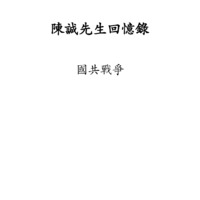
Chen Cheng's Memoirs—The War between the Nationalists and Communists
Mr. Chen Cheng (courtesy name Cixiu; alias Shisou) served as the commander of the KMT army, commander-in-chief of the group army, commander-in-chief of the theater of operations, and chief of the general staff of the KMT. After the defeat of the Kuomintang army in Taiwan, Chen Cheng served the Administrative Yuan as Vice President of the Kuomintang. The volumes associated with *Chen Cheng's Memoirs* were published by Taiwan's National Museum of History in 2005. The series is divided into six volumes: *The Northern Expedition and the Chaos* (one volume), *The War between the Nationalists and Communists* (one volume), *The War of Resistance Against Japanese Aggression* (two volumes), and ***The Construction of Taiwan*** (two volumes). The first volume, *The War between the Nationalists and Communists* includes three parts: *Suppressing the Communists - Memories of the Military*, *Summary of Mr. Chen's Words and Actions*, and *Correspondence and Telegrams*. The book has original historical materials related to the five sieges and the counter-insurgency. In particular, this is the first time that important historical materials regarding the correspondence between Chiang Chung-cheng (courtesy name of Chiang Kai-shek) and Cixiu have been made public.